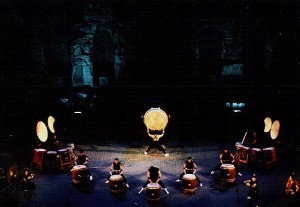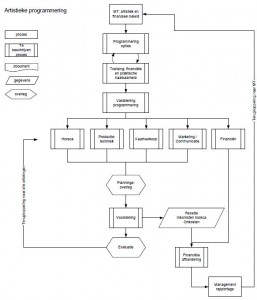Prologue
A degree in industrial psychology, 10 years of work experience in stagecraft, and a passion for theatre motivate me. These are the three threads in my life that converge in TOT, the company that I founded in 2002.
During my studies, I researched political decision-making and the groupthink theory by Irving Janis. I also became a social skills trainer and chose modules like conflict management and group dynamics.

Studying
In addition to industrial psychology, I studied theatre science at the University of Utrecht where, after the first year, I opted for subjects covering dance and art theory. During my career I have broadened my knowledge in management, theatre and computer science by taking a range of courses, such as time management, project work, marketing, negotiation skills, rigging and safety, as well as computer courses such as Advanced Excel, MS Access, Databases, SQL, HTML, MS Visio and Visual Basic. » read on about Background – industrial psychology
Three challenges and a new business
I stopped touring in 2000, not so much because I wanted to put down my Maglite, but because clients approached me with challenging requests that appealed to my background as an industrial psychologist.
Technical production

After a successful tour with Wadaiko Ichiro in 1996, Van Baasbank & Baggerman asked me to join them as their technical coordinator. Working with international companies seemed to be a challenge that fitted me like a glove. » read on about The launch of TOT
In this ICT project management section of the site, you find under the Applications heading a multitude of ways to support work processes with the help of automation. In order to utilise these properly you must have a clear picture of your organisation’s work processes.

Process scan
TOT has developed a process scan: a way to analyse and clearly outline work processes. Process analysis is a logical product for Marijcke Voorsluijs who, as an industrial psychologist and the owner of TOT, thoroughly understands the business processes within the cultural sector. » read on about Process analysis
A process scan is a structured way to outline work processes. Within a cultural organisation, such a work process could, for example, be the realisation of a performance, exhibition or event – from the draft concept right up to evaluation.
Relay race
An organisation produces products and has suppliers and buyers. Within the organisation, each department produces a (partial) product with its own suppliers and buyers. The work process up to the product is a ‘relay race’ whereby different people or departments in turn pass the baton on to one another.
A process scan is achieved by interviewing key people (usually departmental heads) about their position within the relay race and their role in the realisation of the organisation’s products. » read on about Process scan at work
A process scan is not a document to be glanced at now and again. It can prove invaluable in practice.
A process scan:
- Is a tool to help you train new staff quicker;
- Shows the place and function of everyone’s work in the bigger picture;
- Shows the key moments within the process; if these are not (adequately) completed then the following stage will commence, but on an unstable foundation;
- Offers the possibility to translate the event-related steps into an event blue print – and even to refine it into a task list per department; » read on about The value of a process scan to your organisation
An eye on communication
Communication is everything: in the world of culture, just as everywhere else. Yet it does not always happen on its own. Seemingly opposing interests, different cultures, new legislation and regulation or organisational growth are all potential areas of conflict or friction.
At TOT, Marijcke Voorsluijs combines her industrial psychology expertise with more than 20 years of work experience in the cultural sector. She has resolved many issues for her clients, either on her own or in collaboration with other specialists in her network. » read on about Project management


